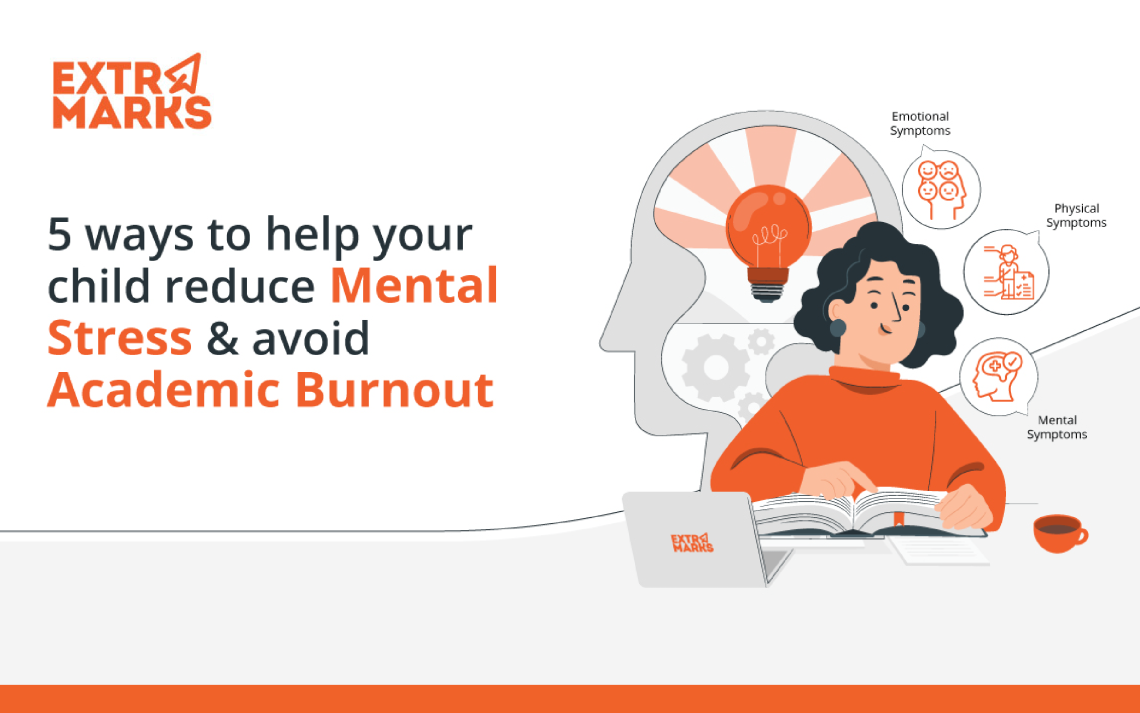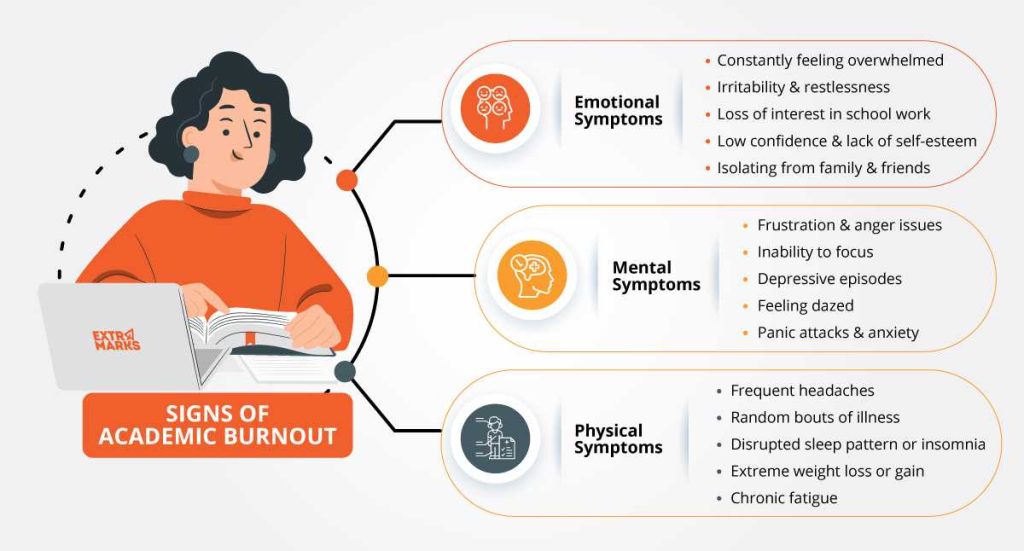5 Ways To Help Your Child Reduce Mental Stress & Avoid Academic Burnout

We know that most adults experience a burnout maybe once or more in their lifetime. The leading causes for it are work stress, health issues & mental exhaustion. All of this, over a period of time, becomes so overbearing that it starts to take a toll on day-to-day life. Unfortunately, academic burnouts have become a reality for students as well.
As we celebrate World Mental Health Day, let’s look at the various causes of academic burnout and the things you can do as a parent to shield your child from stress and mental exhaustion.
To begin with, you first need to identify if your child is stressed or experiencing a full-blown burnout. Stress generally has to do with too much of everything – from assignments, projects to exams whereas a burnout is typically marked by the opposite. Here, there is an inherent lack of focus, interest or motivation to get things done. A few other symptoms of an academic burnout include lack of accomplishment, fatigue, no creativity, anxiety & detachment.
Are you worried that your child may be going through some of these symptoms? Don’t worry, we have put together useful tips that you can use to safeguard your child from having a burnout at school.
5 Tips To Steer Clear Of An Academic Burnout

Help Them Set Achievable Goals
Start small. Practice math problems for 30 minutes. Learn one chapter a day.
Taking on too many responsibilities at once can overwhelm your child & lead to confusion. Instead, breaking down big tasks into micro tasks can be a more realistic approach to achieving them. The key here is to simplify tasks & maximize purpose as much as possible.
You can also encourage them to use a calendar or create a handwritten activity tracker where they can list down all deadlines for the day to make the process interesting yet useful.
Introduce Self-Care Tools
A balanced mind is the most powerful tool you will ever need
As adults, we are more capable of overcoming a burnout since we are aware of the tools needed to deal with it. To help your child face pressures at school with ease, provide them with self-care tools like meditation, positive self-talk, exercise, yoga, communicating their needs & so on.
This will not only help them become more self-sufficient and remain focused even in challenging situations but can also result in long term benefits that will be carried way beyond school.
Make Time For Stress-Busting Activities
Doing things you enjoy is the best medicine, along with laughter of course
All work & no play…you know how it goes. But identifying hobbies that your child truly enjoys will help them relax & get their minds off assignments, projects & other countless school activities. Listening to music, spending time in nature & journaling are particularly therapeutic & are known to be among the best stress-relievers.
Moreover, having family get togethers & game nights can also be a great way to spend quality time & show your child that they can always find love & support at home no matter what.
Limit Your Expectations
Performance pressure & anxiety go hand in hand
If you are a parent who expects your child to constantly excel at all things academics, this one’s for you. While we understand your intention, expecting your child to live up to your expectations at all times by burdening them with pressure to top their class can create overbearing pressure & lead to low levels of self-esteem or even a burnout.
A better alternative is to reinforce an effort not outcome mindset by motivating your child to work hard, give their best shot at whatever they do & not let results define their degree of success. This is likely to boost their morale & get them to perform better.
Positive Reinforcement
Genuine appreciation holds the power to turn a bad day into a great one
Doesn’t it feel good when someone pays you a compliment or shares kind words of appreciation? Similarly, using affirmative words about your child’s performance at school or perhaps a project that they attempted to do has the potential to empower them.
Let’s say there was this exam they had been preparing for & it didn’t quite go as anticipated. Let your child know that you are still proud of them for trying & are confident that they will perform better the next time. This will not only reassure them but also encourage them to believe in their capabilities.
There is no perfect guide to keep your child away from experiencing a burnout. However, being well-informed & identifying their needs at the right time will equip you with the right tools to navigate a potential burnout situation.
It turns out that achievable goals, realistic expectations, a hint of self-care, stress-busting activities & genuine appreciation can do a whole lot of good for your child’s academic journey!
Last Updated on October 12, 2023









